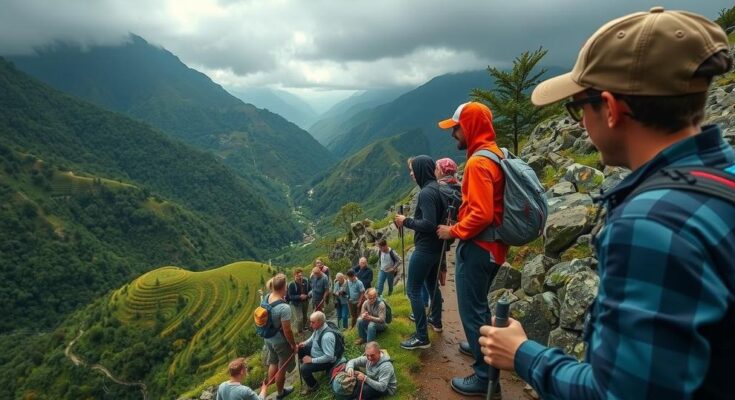Four New Mexicans, including UNM alumni, climbed Ecuador’s highest peaks to advocate for prosthetic care accessibility. The initiative raised over $350,000, emphasizing mobility as a human right. The climbers shared their journeys of resilience in the face of adversity, particularly Kyle Stepp’s, who has dedicated his life to improving resources for the disabled community. The event highlighted critical issues surrounding assistive care availability in Latin America, reinforcing the mission of The Range of Motion Project (ROMP).
In an inspiring union of adventure and advocacy, four New Mexicans, including three University of New Mexico alumni, scaled Ecuador’s towering peaks to promote enhanced access to prosthetic care. The climbers, Kyle Stepp, Sean O’Neill, and Jacob Fox, reached the slopes of Cayambe, nearly 19,000 feet high, while Allison Gordon, a medical resident at UNMH, ascended Chimborazo, the highest peak in Ecuador at over 20,000 feet. Their mission was to bring attention to the necessity of mobility as a fundamental human right for the disabled community, particularly in underprivileged regions of Latin America. Stepp emphasized the significance of this endeavor, stating, “As a person with limb loss, it is an honor to have fellow New Mexicans and allies to the disability community join me to take on the highest summits in Ecuador and champion disability rights together.” The World Health Organization estimates that only one in ten individuals requiring assistive devices, such as prostheses, receives appropriate care, primarily due to various systemic barriers. In recognition of the critical issue of mobility and accessibility, The Range of Motion Project (ROMP) organized the climb to raise awareness and funds since its inception ten years ago. The initiative brought together three distinct teams to summit Chimborazo, Cotopaxi, and Cayambe during its anniversary celebration. ROMP is committed to ensuring the provision of quality prosthetic care in Ecuador and beyond. Reflecting on their experience, Stepp mentioned the profound impact of watching fifty individuals receive their prosthetic devices, stating, “Seeing amputees walk for the first time and run for the first time reminds you why access to prosthetics is essential and life-changing.” Despite facing challenges due to altitude sickness and avalanche risks, the climbers persevered, raising over $350,000 this year and contributing to the nearly $1 million total raised for disability advocacy in the past decade. Stepp, himself a survivor of significant medical adversity, is motivated by a deep sense of responsibility towards the disabled community. In previous years, he endured a life-threatening battle with cancer, leading to amputation, which has compelled him to advocate for legislative changes to improve insurance coverage for prosthetic devices. Together with fellow amputee Nicole Ver Kuilen, Stepp is a co-founder of the initiative “So Every BODY Can Move,” advocating for insurance reforms to facilitate broader access to mobility aids, which has already influenced eight states. His dedication to philanthropy and community service extends to founding LoboTHON at UNM and competing internationally in triathlons as a para athlete. Stepp continues to inspire others by demonstrating resilience and determination even in the face of adversity, preparing to represent Team USA at the upcoming 2028 Paralympic Games.
The article discusses a significant charitable climbing expedition undertaken by four New Mexicans to advocate for improved access to prosthetic care in Latin America, specifically in Ecuador. The initiative, which is part of a broader mission led by The Range of Motion Project (ROMP), seeks to highlight the severe lack of resources and accessibility for individuals with limb loss. This climb not only raises funds but also creates awareness about the pressing issue of mobility as a human right. Furthermore, the article provides insight into the personal experiences of the climbers, particularly Kyle Stepp, highlighting his journey through health challenges and his commitment to advocacy within the disabled community.
In conclusion, this remarkable ascent not only represented a personal challenge for the climbers but also underscored the importance of accessibility to prosthetic care for those in need. Through their efforts, they raised substantial awareness and funds that will aid in providing mobility solutions for individuals with limb loss in Latin America. The experience reflects a powerful commitment to social justice, disability rights, and community engagement, showcasing how adventure can be harnessed to effect real-world change.
Original Source: news.unm.edu




